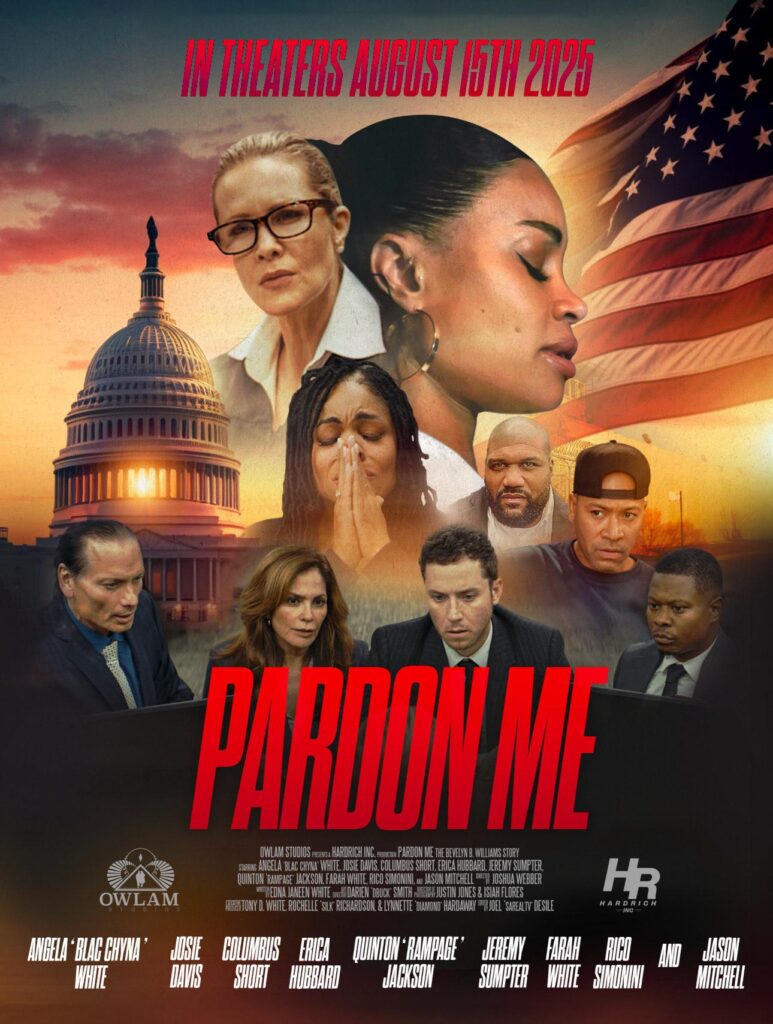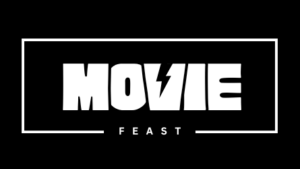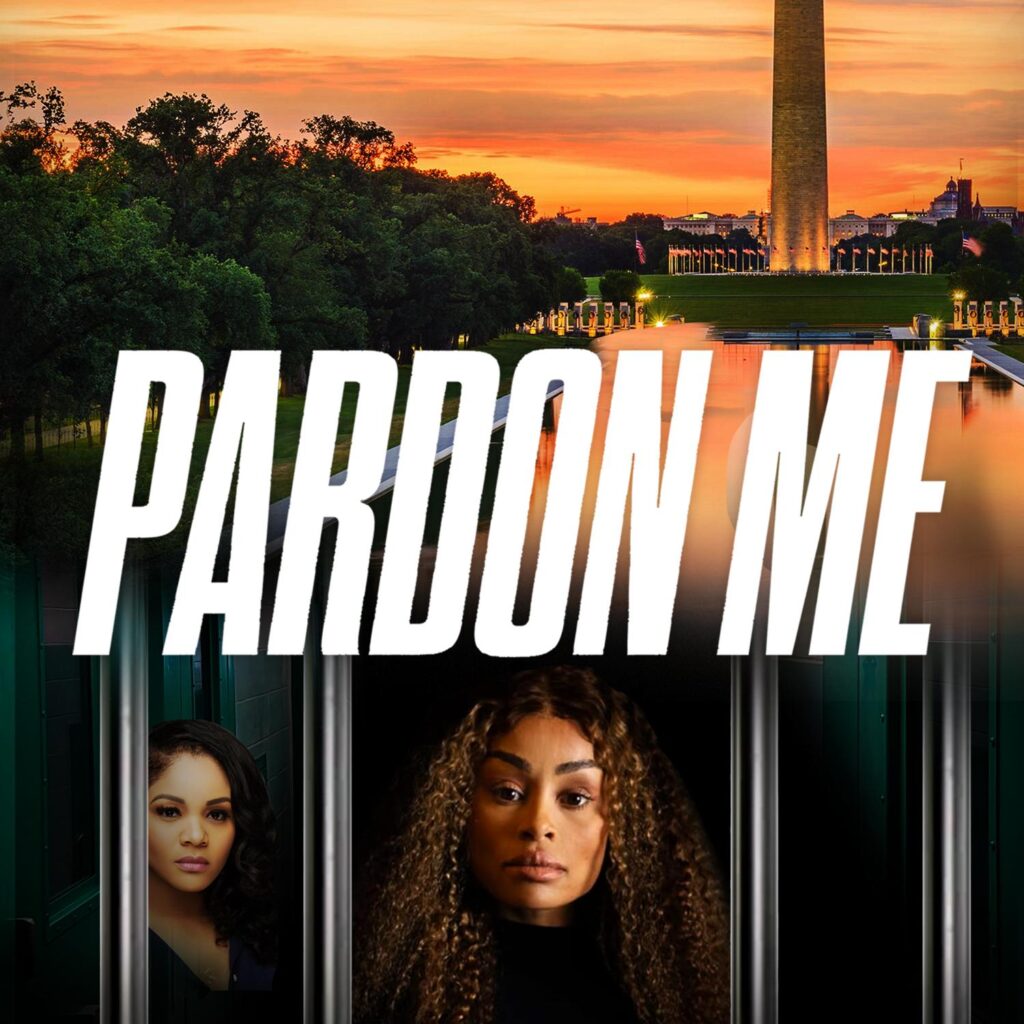Josh Webber’s Pardon Me: The Bevelyn B. Williams Story arrives in theaters on August 15, 2025, and parents are wondering: Is this biographical drama right for my family? After analyzing the film’s content, themes, and true-story foundation, here’s what you need to know: Pardon Me: The Bevelyn B. Williams Story is expected to be rated PG-13 for mature thematic content, some violence, and language, making it generally suitable for teens and adults who can handle serious social and political themes.
Director: Josh Webber
MPAA Rating: PG-13 (expected)
Starring: Blac Chyna, Josie Davis, Jason Mitchell, Columbus Short

Understanding the PG-13 Rating
What Does PG-13 Mean for Your Family?
The expected PG-13 rating for Pardon Me reflects the film’s mature biographical content dealing with activism, legal consequences, and social justice themes that require careful consideration for younger viewers.
The PG-13 rating means:
- Some material may be inappropriate for children under 13
- Parents are strongly cautioned to provide guidance
- Content deals with serious real-world issues that benefit from adult context
- Themes about activism and legal consequences require mature understanding
Personal Note: As a mother who’s navigated biographical dramas with my 9, 12, and 16-year-old, I’ve learned that true story films about social activism can spark powerful family discussions. However, the serious nature of Bevelyn Williams’ story requires careful consideration of your child’s readiness for complex political and social themes.
Age-Appropriate Viewing Guidelines
Ages 6-10: Not Recommended
My Recommendation: Wait until they’re older
Young children in this age group should avoid this film due to:
- Complex themes about activism and legal consequences that may be confusing
- Mature content about standing up for controversial beliefs
- Emotional weight of a true story involving serious personal sacrifice
- Political and social themes requiring adult context and explanation
Alternative suggestion: Consider age-appropriate films about standing up for beliefs or helping others that don’t involve complex political issues.

Ages 11-13: Proceed with Caution
My Recommendation: Watch together with extensive discussion
Tweens may struggle with the film’s serious themes, but mature 13-year-olds might benefit from:
- Understanding how individuals can make a difference through activism
- Learning about the importance of standing up for your beliefs
- Seeing the real-world consequences of civil disobedience
- Discussing the complexity of social and political issues
If you decide to go: Be prepared for deep conversations about activism, legal systems, and personal conviction.
Ages 14+: Generally Appropriate
My Recommendation: Excellent opportunity for meaningful discussion
Teenagers will appreciate the film’s exploration of activism, conviction, and the price of standing up for beliefs while understanding the complex social issues presented.
Content Breakdown: What to Expect
Mature Thematic Content
What’s Included:
- Real-life story of pro-life activism and its consequences
- Legal proceedings and potential imprisonment
- Personal sacrifice for deeply held beliefs
- Complex social and political themes about reproductive rights
Parent Perspective: The film brings to light the harrowing true story of a fearless pro-life activist who paid the ultimate price for standing on her convictions, which means families should be prepared for serious, emotionally challenging content.
Language and Intensity
What to Expect:
- Mature language appropriate for biographical drama
- Intense emotional moments during legal proceedings
- Realistic dialogue reflecting the stress of activism and legal consequences
- Language that reflects the gravity of the real-life situation
Real Talk: The language will likely reflect the serious nature of the true events and the emotional intensity of fighting for deeply held beliefs.
Social and Political Themes
What You’ll Encounter:
- Complex discussions about reproductive rights and activism
- The intersection of personal faith, legal systems, and social change
- Government authority versus individual conscience
- The personal cost of standing up for controversial beliefs
Emotional and Thematic Content
Activism and Personal Conviction Themes
The film explores Bevelyn Williams’ life, her conversion, her arrest, and her subsequent pardoning, providing a complete picture of how personal transformation can lead to life-changing activism and its consequences.
Discussion Opportunities:
- What does it mean to stand up for your beliefs even when it’s difficult?
- How do we balance personal conviction with respect for others’ viewpoints?
- What role should civil disobedience play in a democratic society?
- How can individuals create meaningful social change?
Personal Experience: My 16-year-old found biographical films about activists inspiring for understanding how individuals can impact society. We had meaningful conversations about the importance of conviction while respecting different viewpoints on complex issues.
Positive Messages and Values
The film emphasizes the power of personal transformation, standing up for beliefs, and the importance of second chances through the story of Williams’ eventual pardoning.
Core Values Presented:
- The courage to stand up for deeply held beliefs
- Personal transformation and the power of conviction
- The importance of peaceful activism and civil disobedience
- Understanding that standing up for beliefs sometimes comes with significant personal cost
- The possibility of redemption and second chances
Practical Movie-Going Tips
Before You Go
Prepare for Serious Content:
- Research Bevelyn Williams’ real story to provide context
- Discuss the difference between peaceful activism and other forms of protest
- Talk about how people can disagree respectfully on important issues
- Set expectations about the serious, dramatic nature of biographical films
During the Movie
Engagement Strategies:
- Appreciate the performances bringing real people to life
- Notice how the film handles complex social and political themes
- Pay attention to the personal cost of activism shown in the story
- Observe how legal systems and personal conscience intersect
After the Movie
Discussion Activities:
- Research the real Bevelyn Williams and her actual story
- Discuss what they learned about activism and personal conviction
- Talk about how people can create change while respecting others
- Connect themes of standing up for beliefs to age-appropriate situations in their lives
Expert Endorsements and Research
Reviewed by Dr. Patricia Coleman, Social Studies Education Specialist, on August 13, 2025
Pardon Me: The Bevelyn B. Williams Story offers a compelling examination of activism, personal conviction, and the intersection of faith and social action. While the mature themes require thoughtful family discussion, the film provides valuable insights into how individuals can create meaningful change in society.
Supporting Research
According to educational experts, biographical dramas about social activism can benefit teens when:
- Parents provide historical and social context for the issues presented
- Families discuss different perspectives on complex social issues respectfully
- Content encourages critical thinking about civic engagement and personal responsibility
- Programming demonstrates both the power and the cost of standing up for beliefs
The Bottom Line: Is Pardon Me: The Bevelyn B. Williams Story Right for Your Family?
Green Light Families
- Teens 13+ who are interested in social justice and activism
- Families who appreciate biographical dramas based on true stories
- Parents comfortable discussing complex political and social themes
- Viewers who want to learn about different forms of peaceful activism
Yellow Light Families
- Families with tweens who are mature but may need significant guidance
- Parents who want to use the film as a teaching tool but are concerned about political content
- Viewers who prefer lighter entertainment but appreciate true stories of conviction
Red Light Families
- Children under 13 regardless of maturity level
- Families who prefer to avoid political or controversial social themes
- Parents seeking light entertainment rather than serious biographical drama
- Viewers who are uncomfortable with films about civil disobedience
Making the Decision That’s Right for YOUR Family
Remember, you know your child better than any rating system or review. Trust your instincts and consider:
- Your family’s comfort level with political and social activism themes
- Your child’s ability to understand complex issues with multiple perspectives
- Whether you’re prepared for serious discussions about faith, law, and personal conviction
- Your family’s interest in biographical stories about real people who made difficult choices
My Final Recommendation: Pardon Me: The Bevelyn B. Williams Story offers a thought-provoking examination of personal conviction, activism, and the price of standing up for beliefs. The biographical drama format provides an excellent opportunity for families with mature teens to discuss complex social issues, the importance of peaceful activism, and how individuals can create meaningful change while respecting democratic processes.
Ready to explore this powerful true story with your family? Share your movie experience in the comments below, and don’t forget to subscribe to our newsletter for more family-friendly movie reviews and discussion guides about films that tackle important social themes
External Resources:
- American Academy of Pediatrics Media Guidelines
- Common Sense Media Movie Reviews
- National Council for Social Studies Educational Resources


